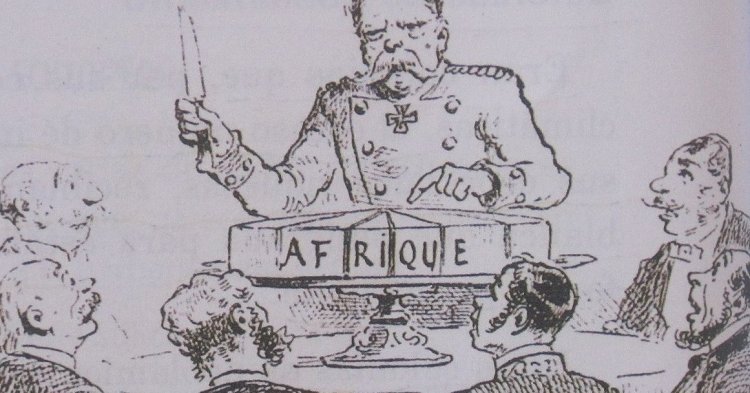The continent of Africa was once viewed by Europe as the antithesis of civilization, which comprehensively penned down as “The Heart of Darkness” in the words of novelist Joseph Conrad. The overwhelming inclusion of the African continent in the international diaspora in recent times, resembles the ages of exploitation during colonization, where the dictation of policies and security of interest had been done on the barrels of the gun. Today, evolution has replaced the artillery and cannons with modern age tools, including norms, sanctions and strategic investments.
Globalization has replaced former world orders, bringing more inclusivity among the states and relaxing the policies of immigration and exchange programs to bolster the interest of the developed world. In 2010 during the 20th World Economic Forum on Africa, table the fact that Africa has been deprived of 200 billion dollars yearly due to European private actors exploiting tax loopholes and denying a fair share to African governments.
In the honorific endeavor of native people, the fate of Africa was rewritten, and the destiny of the new Africa promised was shaped by the de-colonial movement. Leaders, including Julius Neyer in Tanzania, advocated the adoption of the socialist economy and propagated "ujamaa," a cooperative economy led by people assisting each other to meet the essential needs of the population that the colonizers had subjugated. Near the Suez Canal, African pan-nationalism erupted after Gamal Abdel Nasser overthrew the Pro-Western rule of the Muhammad Ali dynasty in Egypt, steering the African position through the Advocacy of Non Allignment Movement (NAM) during the Bandung Conference that India championed.
The struggle for supremacy over the resources converted the continent into a hotspot of proxy wars, tribal distinctions, and the religious segregation fomented in the prolonged violence that swallowed millions of young population, exhausted resources and ruined infrastructure. A significant proportion of these war factions identified with one of the camps that divided the world in two blocks during the Cold War, including Rhodesia and the South African Apartheid regime, had great support in the west, while the rebel groups often pledged to either The Soviet and The People’s Republic of China.
The proclamation of Former Prime Minister Harold Macmillan in his speech “Wind of Change,” which recognized the African rights of self-determinants against the apartheid regime in early 1960s, surfaced again with the rise of China in the 21st century tabling the question, whether Africa’s destiny locked again between the tussle of geopolitical goals of the new great powers, The United States and China.
The Geopolitics of Africa
For the longest time, the outside world was not interested in Africa. Then one country saw the opportunity and thus began a new race for Africa, not very different from the scramble of the 19th century when colonial Britain and France were interested in the native people to draw raw material, enslaved people and exercise geopolitical influence. Now in the 21st century, global powers are more or less leading the same race. China, the United States of America, Canada, Israel, Japan and the European Union are all in the race for Africa. One country which is a clear winner is none other than China.
Africa is a continent of 54 sovereign states, 17% of the world’s population, 9.6% of the global oil output, 90% of the world’s Platinum supply, 90% of the world’s cobalt supply, two third of the world’s Manganese, a quarter of the world’s gold production, 35% of the world’s Uranium, 80% of the world’s Coltan and 54 votes in the United Nation General Assembly. This is what makes Africa so attractive, it makes the continent a battleground for global powers.
There are numerous fronts: investment, military power, diplomacy, soft power, trade, and geopolitics. Every country has its interest in Africa. In 2016, Israel began its scramble for the continent when Benjamin Netanyahu became the first Israeli Prime Minister to visit Africa in 50 years with the agenda of securing votes in favor of Israel and against Palestine in the United Nations Resolutions. In exchange, Israel sponsored solar water and agriculture technologies. In the same year, 2016, Senegal co-sponsored a U.N. resolution that condemned the construction of illegal Jewish settlements in the West Bank. When the goals of Israel did not meet the desired expectations, it cancelled the Mashav Drip-Irrigation Project, and this is just one example.
The European Union has pledged more than 30 billion euros in sustainable investment for Africa to gain access to the African market of 1.3 billion people. Brussels has negotiated free trade agreements with at least 40 African countries but does this ensure a balanced two-way trade? I contend, it does not.
The prolonged violence swallowed the whole continent to report a lower degree of effort from the west, which resulted in the strengthening of anti-Western sentiments in the African region that benefited China. China is funding one in five infrastructure projects in Africa and it is building every third one. Africa has an infrastructure deficit, and China has a signed checkbook lending interest free loans, and aids of considerable amounts that has recorded a positive development in Sino-Afro relations as stated in the first white paper on China-Africa policy 2006. China invested 23 billion dollars in Africa and built 6,200 kilometers of railways, including the continent’s longest railway line connecting Ethiopia and Djibouti. Beijing has also built the African Union headquarters in Addis Ababa. Much geopolitical influence to start with, Beijing is selling its culture, its currency. In Guinea-Bissau, exit signs are written in Mandarin.
China has established at least 50 Confucious Institutes across 33 countries, and several African countries use Chinese currency. In 2017, China built its overseas base in the horn of Africa, Djibouti, which enabled Beijing to maintain an observatory position over the Suez canal. The base has the capacity to accommodate 10,000 troop. largest trading partner with least 10,000 Chinese firms operate in Africa; this is according to a McKinsey study. Africa has resources, and China has access and the gold to exploit these resources.
China is not the only country investing in this continent; it is not even the biggest. The United States is Africa’s largest investor, accounting for 54 billion dollars of FDI stock. 600 American companies are operating in South Africa alone. For the longest time, Africa was a war zone for Washington. It has over 7,000 troops deployed in the continent, spread across some 13 African countries, including Burkina Faso, Cameroon, Chad, Democratic Republic of the Congo, Kenya, Libya, Mali, Mauritania, Niger, South Sudan, Somalia, Central Republic of Africa and Tunisia. For America, Africa was a continent for counter-terrorism operations. For The U.S, Africa is now a new front to take on China, and Washington is now fighting it out for power and influence.
India and Africa: Shared destiny
Africa binds India through multiple perspectives going deep into history. Prior to the Dutch settlement of the Cape Colony in 1852, Indian merchants were actively involved on the eastern coast of South Africa. The more recent history of the nineteenth and twentieth centuries is one where both India and Africa underwent similarly painful experiences of colonialism, racial prejudice and economic exploitation.
Having experienced similar discrimination, Africa’s struggle for liberty was seen in India as a reflection of its struggle for freedom. India’s independence from the mighty British Empire inspired leaders in Africa in their respective struggles, just as India’s development under a democratic dispensation and its membership of the G20 is encouraging for Africa today.
Close bonds were forged between builders of modern India and African leaders striving to break free from the yoke of colonialism. Diplomatic relations between India and Nigeria, Ghana and Madagascar, were established even prior to their independence. India was at the forefront of convening the Asian-African Conference in Bandung in 1955.
India also raised the issue of racism in South Africa; it would be unfair to say that India’s newfound interest in Africa has nothing to do with China. In 2018, Indian Prime Minister Narendra Modi toured key states just ahead of Chinese president Xi Jinping’s visit; in 2018, India decided to open 18 new embassies in Africa. It also has defense partnerships with Zambia, Nigeria, Ghana, Ethiopia, Botswana, Uganda, Mozambique and Namibia. New Delhi is currently training the African military, Indian company Airtel is a dominant Telecom firm in Africa, and New Delhi is offering 50 thousand scholarships to African students. However, despite everything, India is far behind China in the race for Africa.
If in the 1900s, Africa was colonized with force in 2022, it is being trapped by loans, China accounts for 14 of Sub-Saharan debt in Kenya, and the volume of Chinese loans is six times that of France, which is the country’s second-largest credit, and Sri Lanka can tell you what happens when Chinese loans are not repaid. China is looking to capture Africa; it has a strong diaspora, is spending big money, and is selling its movies, culture and currency.
In the 19th century, the rivalry between Britain and France fueled Africa’s colonization. In the 21st century, the trade war between the United States and China is hastening the same; just like in the 19th century, there are numerous countries in the scramble for Africa, and just like the 19th century, there is nothing in it for Africa.


Follow the comments: |
|
